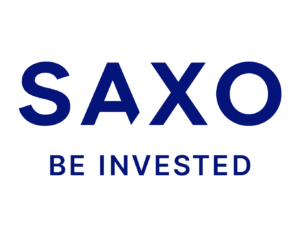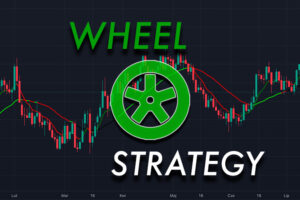What are Exotic Options? Types, advantages and disadvantages, specification
In the previous parts of the options series, investment strategies and the basics of the options themselves were described (you can find them here in this section). The issues concerned ordinary call and put options. In the financial community, this type of option is called vanilla “plain vanilla”. However, there is a separate world of options that is not very well known to the average investor. This exotic options. The name does not refer to the regions where these instruments are traded, but to the unusual solutions that are unusual and unprecedented for investors in vanilla options. “Exotics” are often “tailor-made” for specific customers. Very often this exclusivity is also included in the price of contracts. Often the premiums paid for such instruments are very high.
READ NECESSARY: What are options - an introduction
Exotic options differ from traditional instruments in terms of:
- payment structures,
- expiry dates,
- strike prices,
- how to pay for the bonus.
Of course, “exotics” do not have to be completely different from ordinary options contracts. Sometimes it happens that the difference concerns more than one of the above specifications at the same time.
The very name exotic options has an unspecified origin. The name was first popularized by Mark Rubinstein in an elaboration “Exotic Options” from 1992. In one theory, the name exotic came from “exotic sports betting” which were used to bet on the results of horse races. Another theory is that this type of options was developed in Asia by employees of "western banks". For people of the "Western" Asia has always seemed exotic. In 1987, employees of Bankers Trust: Mark Standish and David Spaughton developed the first widely used formula for mid-priced options oil. Both employees did so during their stay in Tokyo. In honor of the place where their study was created, this type of option is called “asian”. The following years saw the spread of exotic option contracts.
Exotic options - what are they?
As we have already mentioned, exotic options include any option contract that does not meet the "standard" conditions that are visible in the specification of the most liquid options traded on the main trading floors. Due to their specific nature, “exotics” are not traded on organized trading venues. Their "natural habitat" is OTC market, i.e. trading between brokers, dealers, investment banks and enterprises. The underlying instruments of exotic options may be indices, stocks, currencies, commodities or bond prices.
Types of exotic options
As we have already mentioned, this type of derivative may have various “additional conditions”. Most often, this type of option can be divided into:
- affecting the method of calculating the price of the underlying instrument,
- option exercise time,
- selection of the underlying instrument,
- payout profile,
- additional conditions (e.g. activation levels, deactivation levels, paying bonuses).
Due to the very large selection of instruments that can be classified as exotic option contracts, we will describe only a few of them.
chooser option
This is an option type that allows the buyer to choose (at a certain time) whether the option will be a call or a put. The investor can use this instrument if he assumes that the market will be highly volatile. At the same time, the buyer does not know whether there will be a big price movement "up" or "down". To hedge against his scenario, he may purchase an option. Chooser option usually has a large premium because the issuer must somehow hedge against the risk of being on the wrong side of the market. If the “bet” is on liquid instruments, it is worth considering whether it is not better to use the strategy of buying call and put options with the same strike price and the same expiration date. However, for niche products, it may not be easy to build a rack.
Compound options
This is an interesting type of option because it gives the buyer the right (not the obligation) to buy or sell another option with certain parameters (option type, strike price, expiration date, underlying instrument). Typically, this type of option applies to an option on a specific currency pair or debt market instrument.
Options of this type may include the following:
- call on call – an option gives the right to buy a specific call option. This type of option can be used when we expect the price of a given underlying instrument (e.g. EUR / USD exchange rate) will increase, which will translate into an increase in call option prices for this instrument.
- call on put – an option gives the right to sell a specific put option. This type of "exotic" can be chosen if we expect the price of a given underlying instrument (e.g. GBP/USD exchange rate) will fall. This is expected to translate into an increase in the price of put options for this instrument.
- put on put – an option gives the right to sell a specific put option. The investor may assume that there will be high volatility in the market, which will increase the price of the selected put option. At the same time, the investor believes that a subsequent increase in the price of the underlying instrument will be more likely. For this reason, selling put options will allow you to profit from the fall in the time value of the option.
- put on call – an option gives the right to sell a specific call option. This is very similar to the previous point. The investor expects an increase in volatility, which will increase the price of the call option. At the same time, he believes that when the "chosen" option expires, it will be worthless (OTM). For this reason, selling call options will allow you to profit from the fall in the time value of the option.
This type of instrument allows you to trade long-term options without having to take a position right now. Of course, you have to pay an additional premium for this privilege. As a result, taking a position on the "target" option is more expensive than in the case of the "classic" purchase or sale of a call or put option. On the other hand, it allows the investor to minimize taking an unfavorable position in the options market.
binary Options
binary options we call this type of contract which has a very simple payout profile. The investor knows in advance how much he will earn if the price is below (in the case of a put contract) or above (in the case of a call contract) a certain level. For this reason, this type of option is sometimes called all-or-nothing. It is therefore a different type of instrument than the "classic" option contract. In a standard call, the value of the premium increases the higher the price of the underlying instrument. So theoretically, the value of the call option premium could increase by 1000% or 10000%. In the case of a binary call option, no matter how much the price is higher than the strike price, the payout will be the same.
Binary options, due to their simplicity, were very popular with forex brokers. Unfortunately, abuses were very common when brokers manipulated the option settlement price (this concerned in particular 1-minute or 5-minute options). Over time, the scale of the problem was so large that the regulators intervened they “banned” trading in these instruments for retail investors. Such regulations concern e.g. countries of the European Union or Australia.
Of course, trading these instruments is still possible, but only for those with "fat wallets". The range of possibilities regarding binary options is really large. It may concern, for example, exchange rates, inflation level, commodity prices or the level of a given index.
Quanto-options
Otherwise known as Quantity-adjusting options. These are the options that they allow the buyer to buy a given foreign asset but at the same time provide a fixed exchange rate. Thanks to this, the investor does not have to worry that, despite investing funds abroad, the exchange rate will “eat” all the profits. It can therefore be said that this instrument is composed of two options. The first is an underlying asset option, the second is a currency option and provides a fixed exchange rate. Of course, the quant is much more expensive than the classic call or put option. This is due to the "built-in" additional conditions that force the issuer to make an additional hedge of his position. Interestingly, there are quanto options listed on the regulated market. Quanto options are available to investors on the Johannesburg Stock Exchange.
Look-back option
This is a very interesting type of financial instrument that allows the buyer to choose the most favorable option settlement price. Options can be settled at a fixed or floating rate.
In the case of a fixed exchange rate, the exercise price of the option remains unchanged, while the settlement may take place at the best possible exchange rate. For example, a look-back call option has a strike price of $50. On the settlement date, the price of the underlying instrument was $45. However, the investor has the right to choose the best price from the life of the option. In this example, it was $58. So the value of the option on the expiration date is $8 ($58 - $50) instead of $0.
In the case of a floating strike price, the market price does not change. However, the investor has the right to set the settlement price at the most optimal point for himself. For example, an investor purchased a look-back call option with a floating strike price. On the settlement date, the price of the underlying instrument was $45. The investor has the right to choose the rate at which he wants to buy a given instrument. In this example, the minimum price was $35. Thus, the value of the option on the exercise date was $10.
This type of option is very beneficial for the buyer. He can take a position knowing that the exercise of the option will be at the most favorable price. For such a privilege, the buyer of the option has to pay a hefty premium, which is supposed to allow the writer to somehow protect himself against the realization of the worst-case scenario. For this reason, this type of option is profitable only in the event of a large movement in the price of the underlying instrument. Options of this type are usually settled in cash.
Shout option
This is a very interesting type of exotic option. It gives the buyer the right to "Hedge" the exercise price of the call option. What does this "security" look like? It's best to use an example. The investor buys a call with a “shout” option with an exercise price of $50. The price of the underlying asset rises to $56 and the investor uses his clause. This means that regardless of the market price of the underlying asset at the time of contract settlement, the settlement price will be $56. Thus, the value of the option at settlement will be $6. Of course, if the price of the underlying asset rises to $65 at expiration, the investor will buy cheaper than he could. However, if the price drops to $30, the investor can still settle his option at $56. Thanks to this, he earns on the call option despite the decrease in the price of the underlying instrument.
Bermuda option
This is one of the most famous examples of "exotics". It is a kind of combination of contract features with European and American settlement. As a reminder, the European Execution Style option means that it can only be exercised on the expiry date. American style means that the buyer can execute the contract at any time. The Bermuda option, on the other hand, means that the contract can be exercised on the expiration date of the contract and on certain days during the term of the contract. Due to their characteristics, "Bermuda shorts" have a higher premium than "European" and lower than "American".
Asian options
They have a different way of calculating the market price. In a classic option, the market price is the price on the expiration date of the option. Asian ones calculate the average price for a given period. Of course, how the average is calculated depends on the terms of the contract. The mean can be arithmetic or geometric. In turn, the values substituted for the average can be, for example, selected days or all days. Asian options have as a rule low level of volatility compared to standard contracts. This is due to the mechanism of applying the average. It is worth noting that due to the lower implied volatility, "Asian contracts" may have a lower premium than their classic counterparts. The aforementioned instrument is used quite commonly by suppliers and recipients on the commodity market. The reason for using the option may be:
- avoiding price manipulation or a temporary, sharp increase or decrease in the price of the underlying instrument,
- trading on an instrument moving in a volatile trend,
- trading in an inefficient market with low liquidity.
Basket option
This is an interesting type of option that shares most of the characteristics of vanilla contracts. The only difference is the design of the underlying instrument. In the standard option there is only 1 type of underlying instrument. In the case of the basket option, there can be any number of instruments. Of course, the instruments in the basket may have different weights. This is an interesting solution for investors who want to invest in non-standard assets using options. Examples include options on S&P Global, Euronext and MSCI stocks. Normally, an investor would have to buy a contract for each of these three instruments, thanks to the basket option, he can do it in one fell swoop.
Exotic options: pros and cons
This type of option often has very complex pricing formulas. However, despite its complexity, it also has many advantages.
Advantages of exotics over vanilla options:
- the risk profile depends on the specific needs of the investor (buyer) - these may be, for example, barrier options (activation or deactivation of the option if the price of the underlying instrument exceeds a predetermined level).
- a much wider selection of instruments - this is due to the fact that the instrument is tailor-made, so it does not have to be smooth.
- the payout profile can be adjusted to the cash flow of the buyer (e.g. enterprise) - it is possible to construct an option that does not require the buyer to pay a premium before the contract is settled.
Disadvantages of Exotic Options:
- a different reaction of the option price to a change in the price of the underlying instrument - this may be due to a different method of calculating the strike price of the option (e.g. in the case of Asian options, the strike price is the average for a given period),
- exotic options are not easy - it is not a guarantee of easy money, even if the issuer of the contract presents it that way,
- they are often costly - the greater flexibility of the options requires the writer to secure himself otherwise, as they are often the result of advanced financial engineering. The increase in risk costs is visible in the price paid by the buyer.
Summation
Exotic options is a very broad issue, which we only mentioned in Forex Club. This type of contract offers greater flexibility, which, however, very often increases the cost of purchasing such an option. Most options of this type are traded on the OTC market, but some types are also traded on the regulated market. An example of this type of options are "quant", which eliminate the risk of changing the exchange rate. In addition to the advantages, the instrument also has its disadvantages. One of the key disadvantages is the often complicated way of valuing such a derivative.
Key conclusions:
- Exotic option contracts differ from classic options in the way premiums are paid, the expiration date or the way the strike price is determined;
- “Exotics” are created according to the client's expectations (risk tolerance, expected payout profile, etc.);
- Although it is a very flexible type of derivative, it can sometimes be riskier than the classic "vanilla" solution.
Do you know that…?
Saxo Bank is one of the few Forex brokers that offers vanilla options. The investor has a total of over 1200 options at his disposal (currencies, stocks, indices, interest rates, raw materials). CHECK






















![Forex Club – Tax 9 – Settle tax on a foreign broker [Download the Application] Forex Club - Tax 9](https://forexclub.pl/wp-content/uploads/2024/02/Forex-Club-Podatek-9-184x120.jpg?v=1709046278)
![Trading View platform – solutions tailored to the needs of traders [Review] trading view review](https://forexclub.pl/wp-content/uploads/2024/03/trading-view-recenzja-184x120.jpg?v=1709558918)
![How to connect your FP Markets account to the Trading View platform [Guide] fp markets trading view](https://forexclub.pl/wp-content/uploads/2024/02/fp-markets-trading-view-184x120.jpg?v=1708677291)
![How to invest in ChatGPT and AI? Stocks and ETFs [Guide] how to invest in chatgpt and artificial intelligence](https://forexclub.pl/wp-content/uploads/2023/02/jak-inwestowac-w-chatgpt-i-sztuczna-inteligencje-184x120.jpg?v=1676364263)






![Izabela Górecka – “Success on the market depends not only on knowledge, but also on emotional stability” [Interview] Izabela Górecka - interview](https://forexclub.pl/wp-content/uploads/2024/04/Izabela-Gorecka-wywiad-184x120.jpg?v=1713870578)
![WeWork – the anatomy of the collapse of a company valued at $47 billion [WeWork, part II] wework bankruptcy story](https://forexclub.pl/wp-content/uploads/2024/04/wework-bankructwo-historia-184x120.jpg?v=1711729561)
![Adam Neumann – the man who screwed up Softbank [WeWork, part AND] adam neumann wework](https://forexclub.pl/wp-content/uploads/2024/04/adam-neumann-wework-184x120.jpg?v=1711728724)


![The most common mistakes of a beginner trader - Mr Yogi [VIDEO] Scalping - The most common mistakes of a beginner trader - VIDEO](https://forexclub.pl/wp-content/uploads/2024/03/Scalping-Najczestsze-bledy-poczatkujacego-tradera-VIDEO-184x120.jpg?v=1711601376)
![Learning patience: No position is also a position - Mr Yogi [VIDEO] Scalping - Learning patience - No position is also a position - VIDEO](https://forexclub.pl/wp-content/uploads/2024/03/Scalping-Nauka-cierpliwosci-Brak-pozycji-to-tez-pozycja-VIDEO-184x120.jpg?v=1710999249)
![When to exit a position and how to minimize losses - Mr Yogi [VIDEO] Scalping - When to exit a position and how to minimize losses - VIDEO](https://forexclub.pl/wp-content/uploads/2024/03/Scalping-Kiedy-wyjsc-z-pozycji-i-jak-minimalizowac-straty-VIDEO-184x120.jpg?v=1710336731)




















Leave a Response